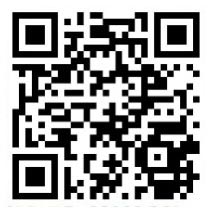hit 一个“神奇”的单词,很多东西都可以被 hit,但却往往不是 hit 的本意
Hit 是一个不规则动词,过去式和过去分词与原形一样,都是 hit,相信大家经常见到 hit 对应的短语,或者说 hit 可以用来“打”很多很多的东西,然而其中的 hit 大部分都不是“打或击”的意思。
当 hit 意为“打或击”时,通常指用手或器皿快速地击打人或物;当表示击打某人的部位时,很多使用表达方式:hit + 人的部位,其实更为地道的是:hit + 人 + 人的部位,例如:
He hit me on the head with his book.
他用书打了我的头。
之所以使用“hit + 人 + 人的部位”,是为了把“hit + 人的部位”与 hit 的另外一个意思区分开来;“hit + 人的部位” 有时还可以表示“使身体部位碰上(某物)”,例如:
I hit my head on the low ceiling.
我的头撞到了低矮的天花板上。

然而在 hit 的实际使用中,不能随意乱用,如“打天花板”不能用 hit the ceiling/roof,因为有其他的意思,意为“勃然大怒,怒气冲天”等,相当于 very angry,例如:
My parents will hit the roof when they realize I drove without a license.
当我父母意识到我无证驾驶时,他们会大发雷霆的。
其实 hit 在很多的其他短语中都不是它的“打或击”的意思,常见的还有我们熟悉的 hit the road,它肯定不是“打路”的意思,不然不是有问题吗?Hit the road,意为“出发,上路”等,例如:
We stopped for breath and hit the road again.
我们停下来喘口气,又上路了。
还有其他很多的习语中的 hit 不是它的本意,我们可以 hit 的东西真的很多,因此我们不能望文生义,但我们更要知道它们的意思,以免张冠李戴,常见的还有如下:
一、hit the sack/hay,意为“上床睡觉”,例如:
He always drinks too much before hitting the sack.
他睡觉前总是喝得太多。
二、hit the jackpot,意为“发大财,突然意外赚大钱”,例如:
What do we deal with the fortune when we hit the jackpot?
当我们中头奖时,我们该如何处理这笔财富?
三、hit the streets 或 hit the shops/stores,意为“大量上市”,例如:
The new model will hit the streets by the end of the year.
这种新型汽车将于年底大量上市。
四、hit the mark,意为“达到目的,猜测正确”,例如:
Seeing your worried look, I knew you didn't hit the mark.
看到你忧心忡忡的样子,我就知道你没有达到你的目的。
五、hit the spot,意为“发挥正当作用,适得启用,合口味”等,例如:
A glass of lemon water will hit the spot.
一杯柠檬水就可以了。
六、hit the nail on the head,意为“说到点子上,正中要害,一针见血”等,例如:
What you just said hit the nail on the head.
你刚才说的一针见血。
由此可见,我们可以 hit 的东西很多,实际还不止以上这么多,不过它们比较口语化,因此不用于正式场合,若商务用语中。












